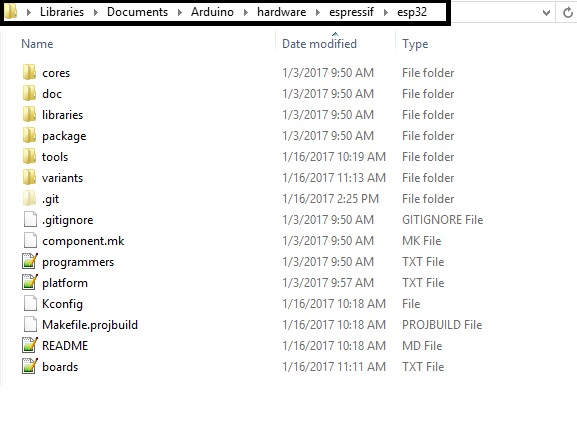Difference between revisions of "Arduino Setup for ESP32"
| Line 1: | Line 1: | ||
[[category:ESP32 Arduino]] | [[category:ESP32 Arduino]] | ||
| − | After the [[Overview of ESP32 features. What do they practically mean?|brief overview of Esp32]], its time to setup the arduino for ESP32 and run some sample examples. | + | After the [[Overview of ESP32 features. What do they practically mean?|brief overview of Esp32]], its time to setup the arduino for ESP32 and run some sample examples. This will install support Horbill ESP32 Dev, Hornbill ESP32 Minima and other ESP32 boards as well. |
| − | + | =Windows= | |
| − | Download/Clone the latest esp32 files from the [https://github.com/espressif/arduino-esp32 espressif repo]. | + | * Download and install the [https://www.arduino.cc/en/main/software latest version of Arduino IDE.] |
| − | + | * Download/Clone the latest esp32 files from the [https://github.com/espressif/arduino-esp32 espressif repo]. | |
| − | [[File: | + | * Create a directory/folder named '''espressif''' under '''''Documents/Arduino/Hardware''''' and extract the contents of files downloaded. It should like so: |
| − | + | [[File:esp32-extract-repo.jpg|center]] | |
| + | * | ||
Revision as of 10:19, 17 January 2017
After the brief overview of Esp32, its time to setup the arduino for ESP32 and run some sample examples. This will install support Horbill ESP32 Dev, Hornbill ESP32 Minima and other ESP32 boards as well.
Windows
- Download and install the latest version of Arduino IDE.
- Download/Clone the latest esp32 files from the espressif repo.
- Create a directory/folder named espressif under Documents/Arduino/Hardware and extract the contents of files downloaded. It should like so:

